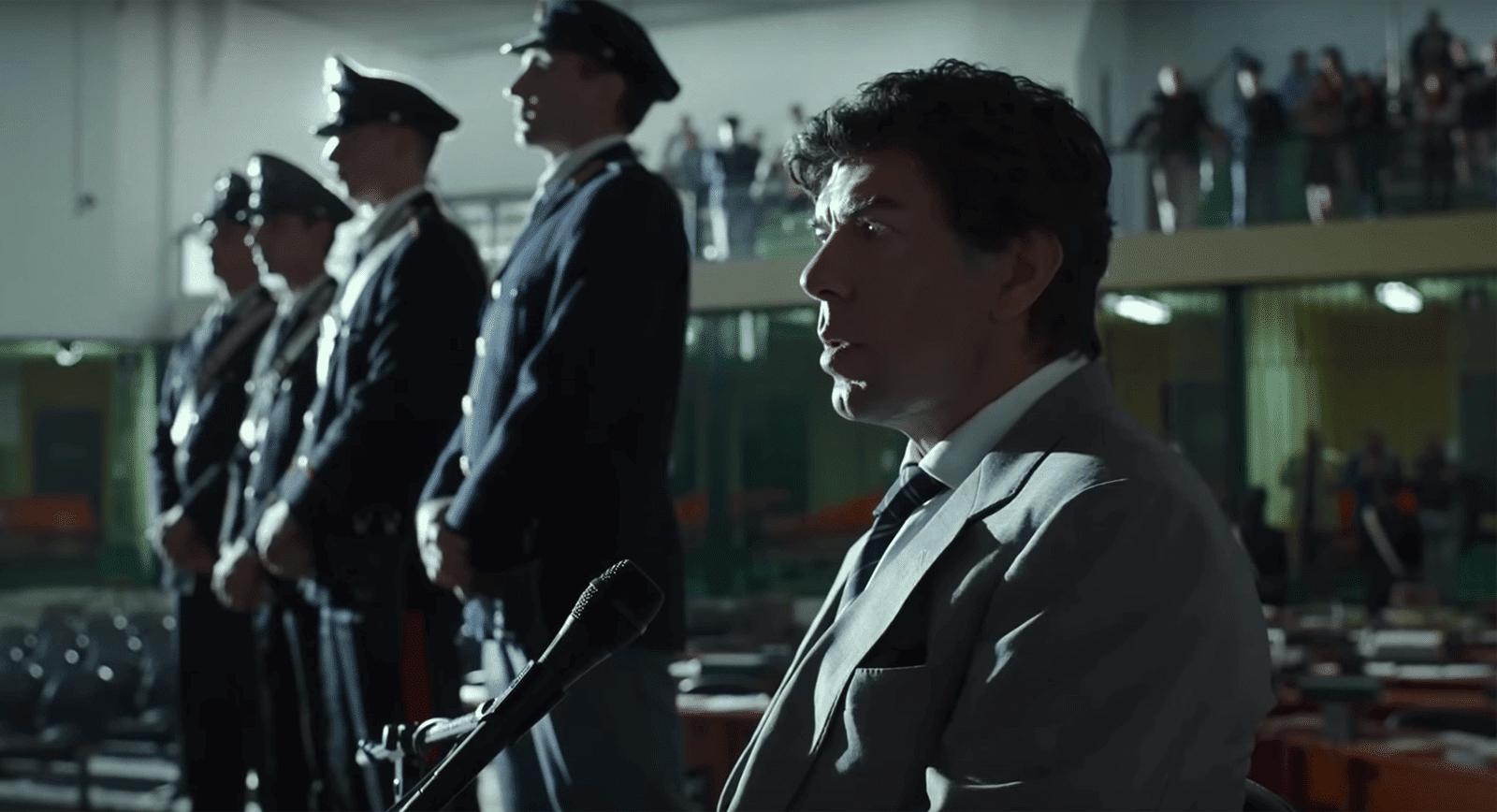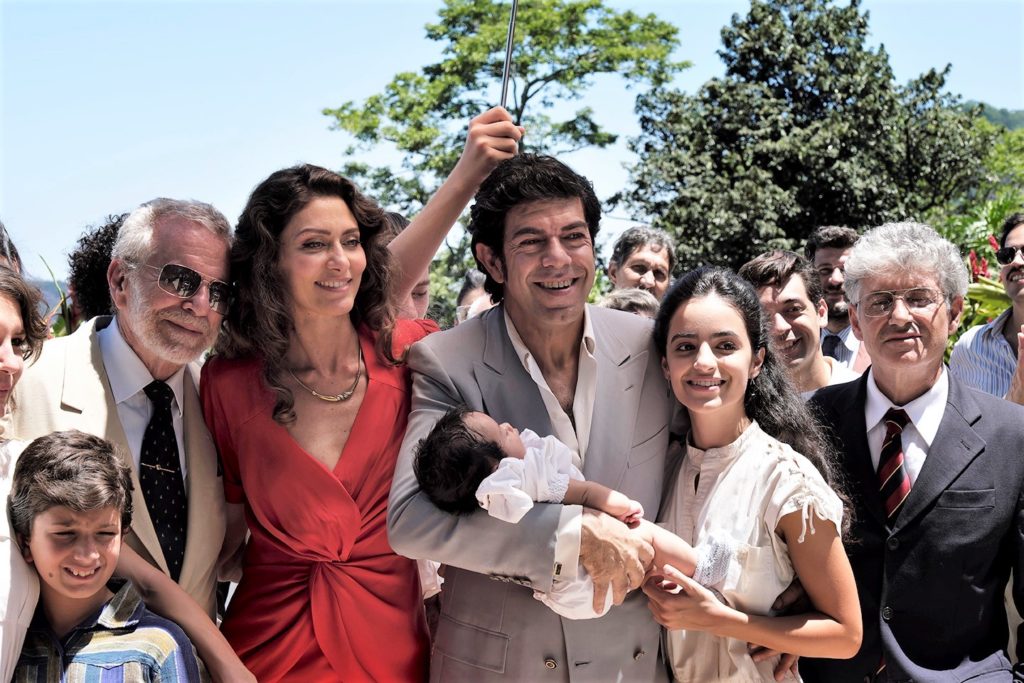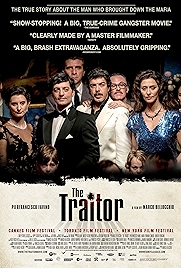The Corleones weren’t fictional. There really was a crime family called the Corleonesi, after the town in Sicily where they came from. In The Traitor (Il traditore in the original Italian) we learn what happened when the Corleonesi fell out with a fellow mob family, in a dramatisation of the true story of Tommaso Buscetta, the crime boss who went “pentito” and sang like a canary to the authorities.
Buscetta (Pierfrancesco Favino) wasn’t a Corleonesi, he was from the other mob, and as Marco Bellocchio’s film opens Buscetta is in Brazil, where he’s living in happy early retirement, having divined that war between rival mobs was imminent, that it was going to be brutal and that he was best off out of it.
Not lacking in ambition, Bellocchio starts his film off in The Godfather style – a big celebration on the feast of Santa Rosalia, the clans all there, fierce upright men, proud beautiful women – courting comparison with Coppola perhaps because what is to come goes so entirely against the mob-movie grain.
Swiftly, so as to not detract from the main event, Bellocchio runs through what happened next. Abducted in Rio de Janeiro by some kind of Italian SWAT team, Buscetta is first tortured and then extradited back to Italy, en route surviving a murder attempt by poisoning. Not even back home and it’s already happening.
There he meets the examining judge, Falcone (Fausto Russo Alesi), who digs in for the long haul, fully expecting Buscetta to give him nothing at all. And for one interview Buscetta doesn’t. But at the second interview he starts spilling the beans, all of them, from first to last, names, dates, all the details. Who knows why – Buscetta’s wife has implored him during phone sex to come home, which might have made a difference. Either way the look on Falcone’s face when he realises what Buscetta is doing is priceless.
The film starts here, so nothing too spoilerish so far, in scenes familiar from news reports from the era, featuring grainy images of defendants being tried en masse in a “Maxi-Trial” in a high security courtroom housed in a bunker. Here, too many crooks really do spoil the broth. In a quick succession of courtroom scenes, Bellocchio shows us the the Italian authorities trying to mete out justice fairly and bending over backwards to avoid the accusation that this is a show trial, though the Maxi-Trial has most of the trappings. The accused aren’t playing along though. Shouting “get a load of my dick,” one mob member manages to get all his clothes off in the courtroom. Another falls to the floor having a fit. Another somehow manages to sew his own mouth shut – omerta as a graphic. Still others demand the right to cross-examine Buscetta. It’s a circus.
We get good movie-style courtroom drama here, with Alesi particularly impressive as Faustino, rising to the occasion with all the wiles and eloquence of a Charles Laughton in Witness for the Prosecution or Spencer Tracy in Inherit the Wind.
And then Bellocchio moves us on, to New Hampshire in 1990, where Buscetta now lives in witness protection, alive to every unusual movement and paranoid from top to toe. And on again, and again, as Buscetta returns regularly to Italy over the long years, to testify repeatedly at more Mafia trials, and is then moved again, to another safe house in a distant part of the US.
Why did he squeal? Was it worth it? Actor Pierfrancisco Favino gives us a portrait of a dignified but vain man and one who believes in his own code of honour. Useful, because in writer/director Bellocchio’s screenplay there’s a hole where a psychological explanation should be. It’s as if a key early scene between Buscetta and Faustino has been cut, the one where Faustino lands the clinching argument and Buscetta decides to turn state’s evidence.
Without it, this is an undeniably good-looking film full of entertainment value and with enough paranoia and jeopardy to keep the show on the road. With it, it would have been a great one.
The Traitor – Watch it/buy it at Amazon
I am an Amazon affiliate
© Steve Morrissey 2021


